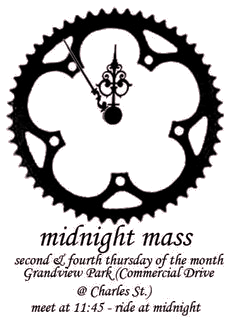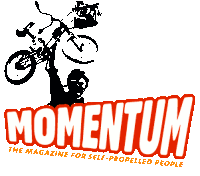Individual identity vs. the financial crisis
See, like I always say... It's always about cars... The centre of our economy and the primary dominant infrastructure - the real grid. Cars don't do what they say (move you efficiently) but they are great status symbols.
Like most punditry, this article is simplistic. The days of consumer debt identity screw the house car driving are far from over. And the impact is not clear. But, I still think this sums up a few important ideas well.
---
RICHARD FLORIDA October 4, 2008 Globe & Mail
Most experts agree this is the worst financial meltdown since the Great Depression. The stock market is down almost 25 percent so far this year. Housing prices in the United States are off more than 20 per cent since their peak in 2006. Manufacturing output is falling and consumer confidence has slipped.
Martin Feldstein, former head of the National Bureau of Economic Research, past chairman of the Council of Economic Advisers and a Harvard economics professor - usually a voice of calming reassurance - wrote in The Wall Street Journal: “Sliding into recession, monetary policy already at maximum easing, and fiscal transfers impotent … an unenviable situation, to say the least, for any incoming president.”
All of this raises two fundamental questions: Where did this financial mess come from? And what does it mean?
The easy answer is to blame the housing market. People took out adjustable-rate mortgages and subprime loans offered with no down payment and easy terms by mortgage brokers who then resold them as securities. As the housing market has weakened and loans have reset, a growing number cannot repay and many more owe more on their mortgages than their homes are worth. Banks and financial institutions, so the story goes, are clogged with this bad debt, now dubbed toxic waste. This is the kind of thinking behind the U.S. financial bailout: Remove the toxicity and all will magically be well again.
The real reason is that the roots of the current crisis are tied to the fundamental nature of the postwar model of economic development called “Fordism.” That model drew a tight connection between assembly-line mass production and mass consumption - ultimately fueled by massive suburbanization.
After introducing the assembly line and making car production more efficient and cars cheaper, Henry Ford realized that a bigger market for his cars was needed - so he boosted workers’ wages by introducing the “five-dollar day.” But even that was not enough, and so North America and the world lapsed into the Great Depression.
Fordism emerged as a full-blown economic and social model during the 1930s, marked by president Franklin D. Roosevelt’s New Deal programs, and flourished after the Second World War, when government policies brought about the rise of longer-term mortgages and a new system organized under the now infamous Fannie Mae to purchase those mortgages and thus lubricate the system.
Add to that massive tax breaks for homeownership and gargantuan subsidies for highway construction and infrastructure, and a whole new model of suburban-fueled mass consumption was born - family after family purchased new homes, filling them with TVs, appliances and all manner of furnishings, while also purchasing record numbers of cars to get to and from work.
While Fordism looks stable on the surface, it suffers from a fatal flaw: It’s impossible for consumption to keep up with the ever-growing pace and efficiency of production. This is particularly true of recent times, when a great deal of production has been sent to China, India and other places where labour is cheaper. It’s hard for the working and middle classes to consume more when their wages are essentially stagnant. Low-wage workers in emerging economies do not have the income to fill the gap. And while the ranks of the rich have grown, the wealthy are a relatively small group that can buy only so many luxury cars, designer products, homes and yachts.
That’s where credit comes in. Those new fancy mortgage instruments were meant to turn homes into veritable “piggy banks” that could be used to finance bigger and better cars and homes and toys.
Almost a century ago, Austrian economist Rudolf Hilferding identified this basic contradiction of modern capitalism in his monumental work Finance Capital. Capitalist economic development stands on a shaky foundation, he argued - workers always produce more than they can consume, more even than society as a whole can consume.
As one leading blogger, Yves Smith at Naked Capitalism, recently put it: “Since consumption has come to depend on growth in indebtedness, a reversal, however painful, is necessary. Our excesses have been so great that there is no way out of this that does not lead to a general fall in living standards.”
There you have it. The financial crisis is in reality a much deeper crisis of our underlying economic model and our way of life. It’s a crisis of the way we have come to define ourselves.
If Fordist mass consumption had a catchphrase, it was “Keeping up with the Joneses” - and in the past decade it became a fearsome standard. So many of us came to define ourselves not through our work or creative endeavors, but through what we could purchase. We were fooled into believing that our identity and self-worth somehow depended on acquiring expensive or impressive belongings - much of it on credit.
Regardless of how or when the financial markets are restored, credit will be much harder to get - the age of the house as piggy bank is long gone.
How will we define ourselves when we can’t get a quick self-defining “makeover” at the dealership, the electronics store or the mall? How will we rebuild our way of life and our very identity? Those are the questions that many of us, and our society as a whole, will be confronting long after the financial markets have been restored.
---
Here is a major secret hint in how to live off of less to those hit hard by this economic downturn: Stop driving! Cars are extremely expensive and most of the costs to the owner are hidden (insurance, maintenance, fuel, ill-health) such that even with the high purchase price you don't know what you are getting into. The social costs (and subsidy) is even higher. Anyway, you will save a lot, have more time, and be able to do more (health, adventure, etc.) - if you drive less (ie don't own a car but maybe share one). This secret could solve widespread social problems if we all as a society changed direction, had lots of new jobs, worked on the environment as is needed, got more deeply local... But that wishful thinking is "backwards" thinking to too many people for it to be our chosen policy. Ah well, nature will force us -eventually- if we don't choose it.
~rusl
Labels: capitalism, car cult
 Vancouver Critical Mass
Vancouver Critical Mass











0 Comments:
Post a Comment
Please be respectful and constructive. If you want to vent or hate do it somewhere else. Violent, threatening and abusive comments will be removed. Please read other posts and discussion to avoid duplicate questions.
<< Home